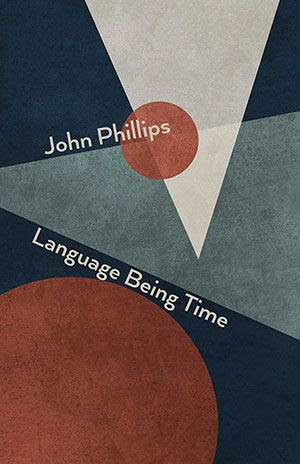John Phillips, Language Being Time
THE POINT
Why add more
words to the
too many there
already no one
pays much
attention to or
acts differently
after reading
as if the point of
it all were acting
differently which
hopelessly it is
 Ittook some time for me to get to, but I am finally moving through British poetand expat currently living “in the hills of central Slovenia,” John Phillips’ fifthfull-length poetry collection
Language Being Time
(Shearsman Books,2024), a book that follows his
Language Is
(Sardines Press, 2005),
What Shape Sound
(Skysill Press, 2011),
Heretic
(Longhouse, 2016) and
Shapeof Faith
(Shearsman Books, 2017) [see my review of such here]. His shortlyrics each sit the small measure of a koan, thoughtfully offered and considered,held with a small turn. His are not the extreme and casual densities of poemsby such as Cameron Anstee [see my review of his latest here] or the late Nelson Ball [see my review of his selected poems here], but something quieter, looser,and at times, more flexible, subtle.
Ittook some time for me to get to, but I am finally moving through British poetand expat currently living “in the hills of central Slovenia,” John Phillips’ fifthfull-length poetry collection
Language Being Time
(Shearsman Books,2024), a book that follows his
Language Is
(Sardines Press, 2005),
What Shape Sound
(Skysill Press, 2011),
Heretic
(Longhouse, 2016) and
Shapeof Faith
(Shearsman Books, 2017) [see my review of such here]. His shortlyrics each sit the small measure of a koan, thoughtfully offered and considered,held with a small turn. His are not the extreme and casual densities of poemsby such as Cameron Anstee [see my review of his latest here] or the late Nelson Ball [see my review of his selected poems here], but something quieter, looser,and at times, more flexible, subtle. Hewrites in small turns, poems that occasionally offer a narrative hinge mid-way,where the poem might alter direction, or a straight line heading somewhereother than you might have been thinking, through a deeply thoughtful andengaged poetics. Listen to this short poem, “DISPENSATION,” in full, thatreads: “History begins / when loss is / saying what / no one present /understands / this going / towards when / & where / no tense / makes sense[.]” As well, I appreciate this note set just at the end of hisacknowledgements, hinting at further engagements, which I would be interested tohearing more than this single hint of what is most likely far larger, andongoing (including with another favourite of mine, American poet John Levy): “Certainpoems are from collaborations with John Levy and James Stallard in which we respondedto each other’s words.”
REPLY
This poem isn’t written
until you finish
readingit



